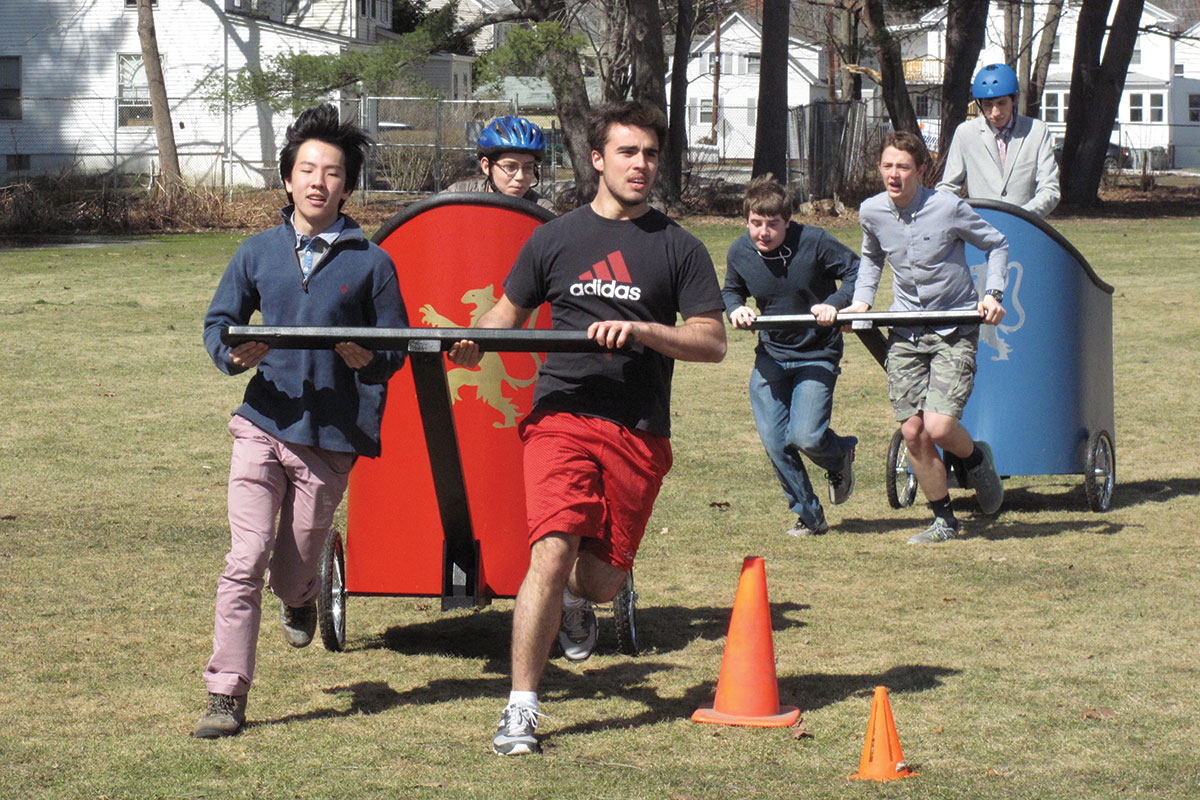The Kirtland Society

Venimus victum!
We come to conquer! That’s the rallying call of Societas Kirtlandi, or the Kirtland Society, a tightknit group on campus who relish all things ancient. “We are a family, united by a common love for the Classics and by a certain divine madness!” says Nick Unger ’90, instructor in Classical Languages and the club’s faculty adviser since 2004. “Where else in the world can you fight with (foam) swords, ride a chariot and speak a dead language?”
While some say the club’s “origin is shrouded in the mists of time,” we asked former club co-head and unofficial historian Charlie Preston ’21 to pull back the curtain and tell us more.
When was the club founded?
The club was founded by Lawrence “Larry” Herrmann ’53, Preston says, and established by vote of the faculty in September 1952. “It will not purely be a scholarly group discussing rules of syntax,” said Herrmann at the time. “It will be more organized and less social than the regional clubs.” A month later, 17 Latin 3 and 4 students attended the first Kirtland Society meeting, which featured a lecture on the “Ironies of Virgil,” delivered by Instructor in Latin Howard S. Stuckey.
The club’s namesake, John C. Kirtland, instructor in Latin from 1897 to 1939.
What do they do?
Lots! The club staged its first play — a reading of Aristophanes’ Frogs — in January 1956 and soon after featured its first student lecture on “The Roman Art of Eating,” delivered by William “Bill” Imes ’60. Its intellectual and cultural endeavors have only grown since. Beyond weekly meetings in the Latin Study and group dinners, the club organizes social events such as the annual Latin Carol Celebration, field trips to the Museum of Fine Arts in Boston, and the raucous Roman Banquet, in which students and faculty donned in Roman attire dine on authentic Roman cuisine while listening to poetry. Club members also partake in local and national events like Certamen competition and the New Hampshire Junior Classical League Quidquid, a winter carnival in which students run classically themed booths featuring gladiatorial combat, mythological face painting, and amulet making.
What is Certamen?
It’s a quiz-bowl-style game in which teams of up to four students compete to answer questions about Latin grammar and literature, classical culture, history and mythology and the relationships between those topics and the modern world.
Want to take the quiz?
Here is a question from the 2021 Yale Certamen: Only an ambidextrous Paeonian named Asteropaeüs was able to wound what man, who battles the god of the corpse-choked Scamander during his return to fighting in The Iliad?
Editor’s note: This feature first appeared in the spring 2022 issue of The Exeter Bulletin.